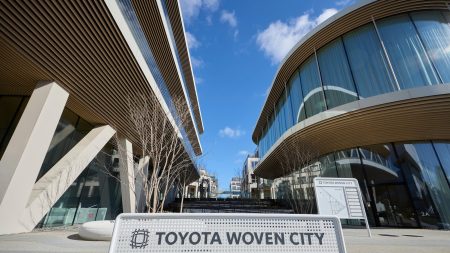SoftBank Group Reports Significant Loss in Fiscal Third Quarter
Japanese technology giant SoftBank Group Corp. has reported a substantial loss of 369.2 billion yen ($2.4 billion) for the fiscal third quarter, marking a sharp reversal from the 950 billion yen profit recorded in the same period the previous year. This loss is primarily attributed to setbacks in its Vision Fund investments, which have been a significant driver of the company’s financial performance in recent years. Despite the loss, SoftBank’s quarterly sales rose by 3% year-over-year, reaching 1.83 trillion yen ($11.9 billion), indicating a modest improvement in operational revenue.
SoftBank’s Vision Fund Struggles Weigh on Financial Performance
SoftBank’s Vision Fund, which invests in promising startups and technology companies, has long been a source of both significant gains and substantial risks for the company. In recent months, the fund has faced challenges, with some of its high-profile investments failing to deliver expected returns. While SoftBank has seen gains from its stakes in companies like Alibaba, Coupang, DiDi Global, and Grab Holdings, these gains were partially offset by losses in other portfolio companies. The volatility of these investments underscores the high-risk, high-reward nature of SoftBank’s strategy, which has led to wildly fluctuating financial results.
Masayoshi Son’s Vision for the Future: Artificial Intelligence
SoftBank’s founder and CEO, Masayoshi Son, has repeatedly emphasized the company’s focus on artificial intelligence (AI) as a key driver of future growth. Just last month, Son made headlines by announcing a $500 billion investment in an AI project called Stargate, in collaboration with high-profile figures such as former President Donald Trump, OpenAI’s Sam Altman, and Oracle’s Larry Ellison. This move reflects Son’s belief that AI will be a game-changer for the technology industry and beyond. SoftBank’s investment in AI is not just a strategic bet but a reflection of Son’s broader vision for the company’s future.
SoftBank’s ARM Business Shows Promise
One bright spot in SoftBank’s recent financial report was the improved performance of its British semiconductor company, Arm. Arm, which SoftBank acquired in 2016, has seen increased sales as demand for its chips has grown in the global market. The company’s success in this area highlights the potential for SoftBank to diversify its revenue streams beyond its Vision Fund investments. However, the overall financial health of the company remains heavily dependent on the performance of its investment portfolio.
A Reversal of Fortune for SoftBank
For the nine months ending in December, SoftBank reported a profit of 636 billion yen ($4 billion), a significant improvement from the 459 billion yen loss recorded in the previous year. This reversal of fortune was driven in part by gains from its investments in companies like Alibaba, Coupang, DiDi Global, and Grab Holdings. However, the latest quarter’s results serve as a reminder of the challenges SoftBank faces in maintaining consistent profitability. The company’s financial performance remains highly sensitive to market conditions and the valuation of its investments.
Looking Ahead: SoftBank’s Strategy and Challenges
As SoftBank continues to navigate the complexities of its investment portfolio and the broader technology landscape, the company faces both opportunities and challenges. On one hand, its focus on AI and other emerging technologies positions it well to capitalize on future growth trends. On the other hand, the volatility of its Vision Fund investments and the uncertainties of the global market pose significant risks. SoftBank’s ability to balance these factors and execute on its strategic vision will be crucial in determining its long-term success. For now, the company remains a key player in the global technology sector, with a reputation for bold bets and a commitment to innovation.















